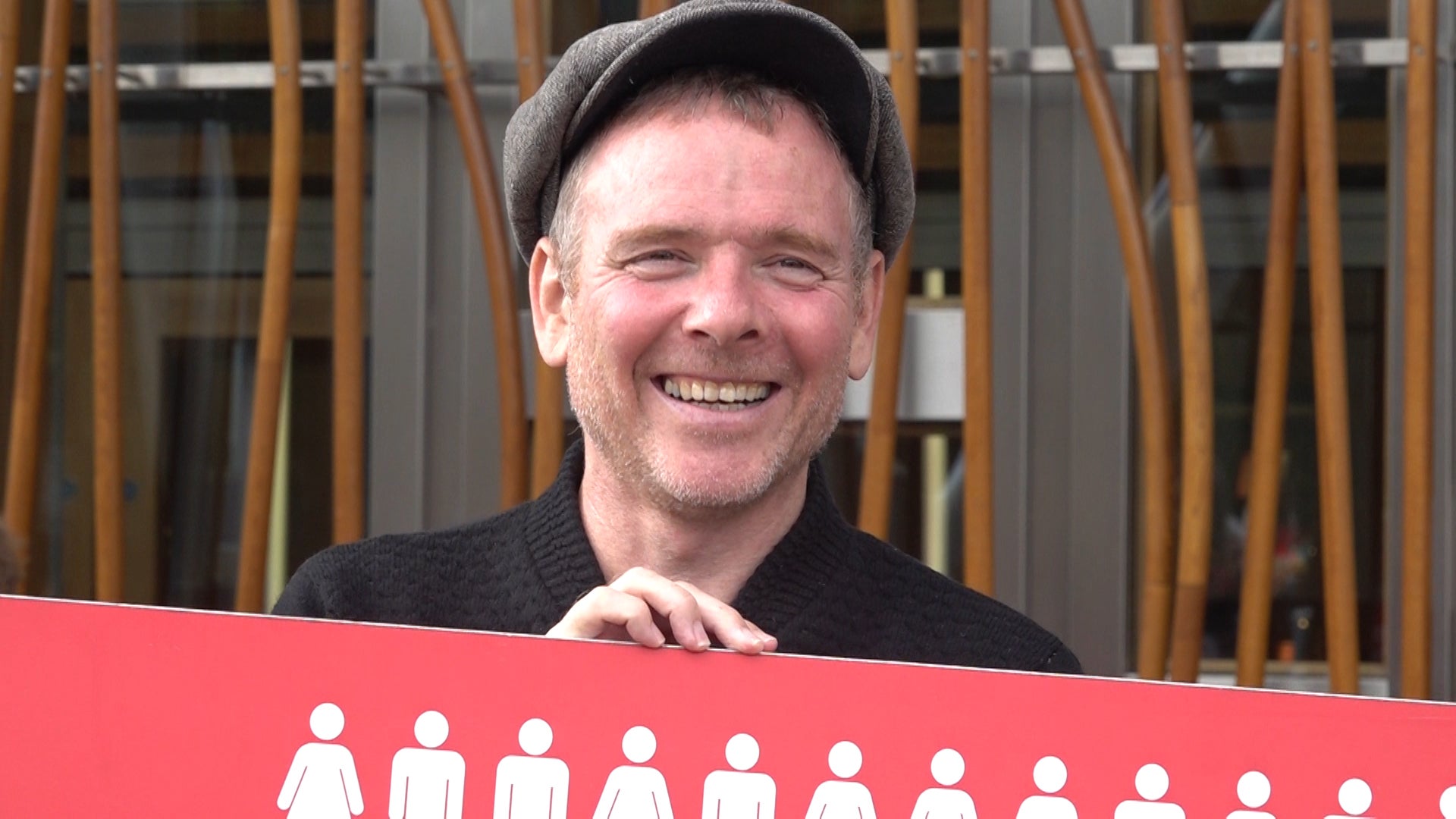Belle and Sebastian singer: Living with ME makes me feel like a ‘non-person’
Stuart Murdoch attended a protest outside the Scottish Parliament calling for specialist treatment for the illness.

Your support helps us to tell the story
From reproductive rights to climate change to Big Tech, The Independent is on the ground when the story is developing. Whether it's investigating the financials of Elon Musk's pro-Trump PAC or producing our latest documentary, 'The A Word', which shines a light on the American women fighting for reproductive rights, we know how important it is to parse out the facts from the messaging.
At such a critical moment in US history, we need reporters on the ground. Your donation allows us to keep sending journalists to speak to both sides of the story.
The Independent is trusted by Americans across the entire political spectrum. And unlike many other quality news outlets, we choose not to lock Americans out of our reporting and analysis with paywalls. We believe quality journalism should be available to everyone, paid for by those who can afford it.
Your support makes all the difference.Stuart Murdoch, the lead singer of Belle and Sebastian, has said living with ME (Myalgic encephalomyelitis) left him feeling “invisible” and like a “non-person”.
He took part in a protest outside the Scottish Parliament on Wednesday, calling for more funding for specialist treatment to tackle the illness, which is also known as chronic fatigue syndrome (CFS).
As dozens gathered at Holyrood, Mr Murdoch said little had changed in the last few years despite promises from politicians.
A number of MSPs came outside to meet the demonstrators and speak to the crowd.
The campaign group ME Action, which organised the “millions missing” protest, says there are about 21,000 people in Scotland with ME.
Mr Murdoch told the PA news agency: “We’re looking for a cure and a treatment.
“It strikes me – why should this be a protest? What makes it different to other illnesses?
“The fact is people with ME, for some mysterious reason are not believed.”
He said there was not a straightforward diagnoses for ME and it had a wide array of symptoms.
The singer, from Glasgow, said: “There’s 250,000 people in the UK, over 20,000 people in Scotland, who are really seriously ill, but with no prospect of even a diagnosis or treatment.
“There’s something quite scandalous about that, they have become non-people.
“In my early days when I was very ill with ME I felt like a second-hand citizen, almost like a non-person, invisible.”
Mr Murdoch was diagnosed with ME 30 years ago, after which he felt he was “pretty much on my own”.
The singer said he had grown used to dealing with the illness by pacing himself, saying: “My job has been based around the ME – as a singer.
“I’m lucky that I’m here.
“There’s obviously thousands of people in the UK that aren’t well enough to even come to an event like this.”
He said it was “bizarre” that there was only one dedicated ME nurse in Scotland.
Two activists dressed as pandas at the demonstration, in order to make the point that there are more pandas in Scotland than specialist ME nurses.
Mr Murdoch said he understood that the NHS was stretched in the wake of the pandemic, but noted that treatments for long Covid and ME could work in tandem.
ME sufferers have seen little change in the past four or five years he said, adding: “It’s good to keep the pressure on.
“But I think, especially in the shadow of long Covid, that they should be looking at ME, because the causes and surely the treatments are similar.”
Another person living with ME, Jo Bruce from Edinburgh, described the impact it had on her life when she first became ill in her 20s.
The 48-year-old said her symptoms grew steadily worse, meaning she had to take increasing time away from her job in financial services.
She said: “Over the course of about five or six years, it went from needing to take a week off work, to maybe needing to take four weeks off work, six weeks off. And then three months off.
“And, of course, this starts to cause problems with your reputation at work.”
Doctors initially told her that her symptoms would pass, but she was eventually diagnosed with ME.
She said there is only one “outdated” clinic in Scotland which deals with ME, and the treatment they offered failed to make a difference.
Ms Bruce said: “There have been some amazing debates and in Parliament, some really nice speeches.
“But they have not actually delivered on those words.”
A Scottish Government spokesman said: “The Health Secretary met recently with MEAction to discuss care for those affected by ME/Chronic Fatigue Syndrome in Scotland and raising awareness of the condition amongst clinicians, and he also attended today’s rally.
“ME/CFS can present a broad range of symptoms, and we know there’s no ‘one-size fits all’ response. We want to support people with ME/CFS to access care and support in a setting that is appropriate and as close to their home as practicable.
“Our strengthening of the primary care workforce through recruitment of multi-disciplinary teams is making it easier for people to access this care and support.
“We have now recruited over 3,220 professionals, including community nurses and physios, with increased funding of £170m in 2022-23 to support further development of these multi-disciplinary teams.
“We are currently working to better understand the services and care pathways available to people with ME/CFS around Scotland.”